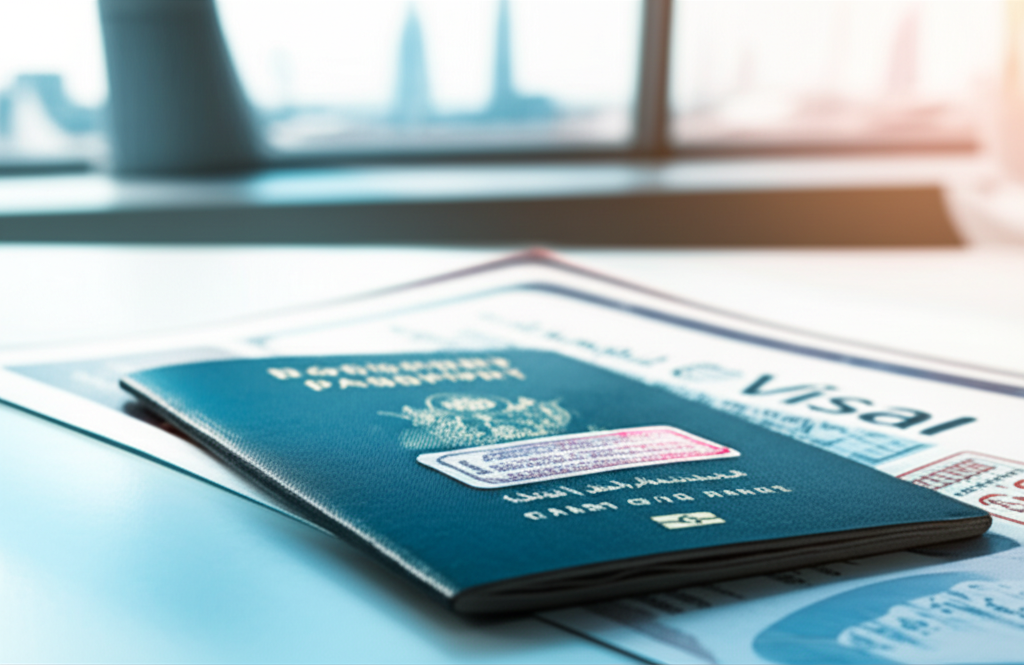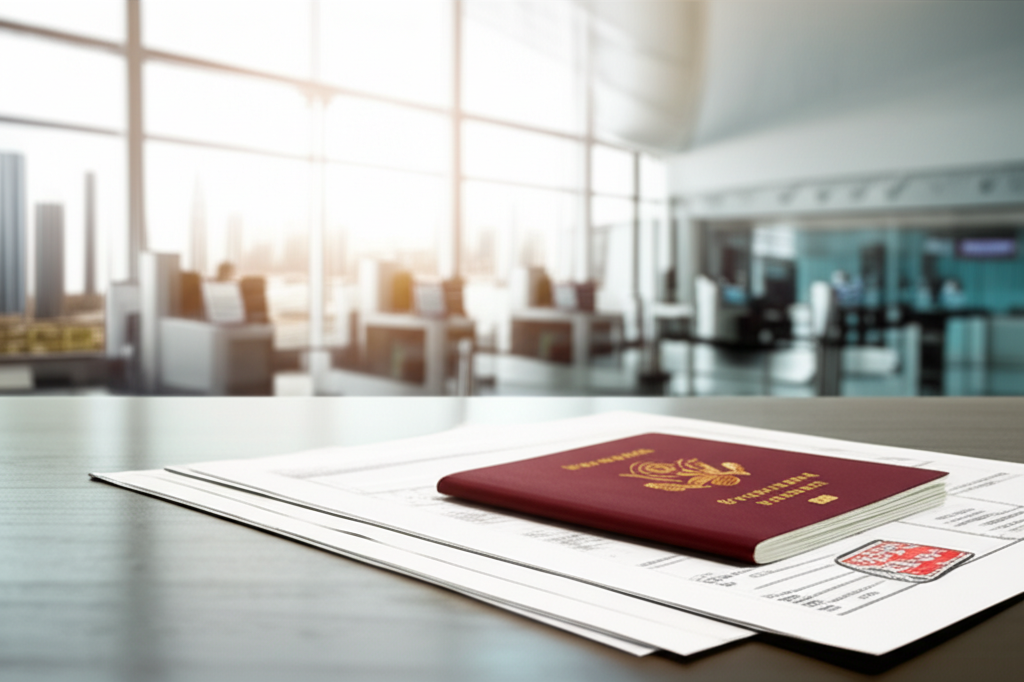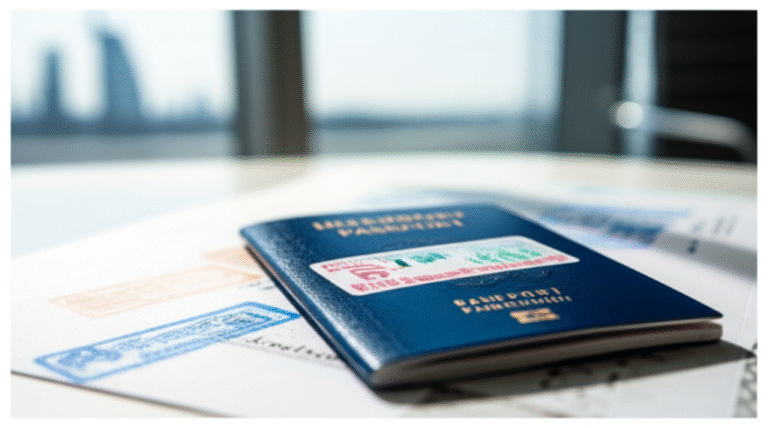How To Divorce In UAE Legally and Fast

To divorce legally and fast in the UAE, understand that the process is streamlined through the Personal Status Courts, especially for mutual consent cases. Legal procedures prioritize fairness, with specific steps for Muslim and non-Muslim residents, ensuring efficient resolution.
Key Takeaways:
- Navigate divorce in UAE with clear legal steps.
- Understand requirements for Muslim and non-Muslim divorces.
- Mutual consent divorces are typically faster.
- Seek legal counsel for complex cases.
- Court procedures ensure legal validity and fairness.
- Documentation is key for a swift divorce process.
In This Article
- 1 How To Divorce In UAE Legally and Fast
- 1.1 Understanding Divorce Laws in the UAE
- 1.2 Divorce for Muslim Residents
- 1.3 Divorce for Non-Muslim Residents
- 1.4 Making Your Divorce Legally Sound and Fast
- 1.5 The Role of Dubai Courts in Divorce
- 1.6 Child Custody and Alimony in UAE Divorce
- 1.7 Navigating Post-Divorce Procedures
- 1.8 Common Pitfalls to Avoid for a Swift Divorce
- 1.9 Frequently Asked Questions (FAQ)
- 1.9.1 Q1: How long does a divorce usually take in the UAE?
- 1.9.2 Q2: Do I need to be in the UAE to initiate a divorce if I’m an expat?
- 1.9.3 Q3: What if my marriage certificate is not in Arabic or English?
- 1.9.4 Q4: Can an online divorce be legally recognized in the UAE?
- 1.9.5 Q5: What happens to joint bank accounts and property during a divorce?
- 1.9.6 Q6: Is there a mandatory waiting period before I can remarry after a divorce?
- 1.10 Conclusion
How To Divorce In UAE Legally and Fast
Separation is a difficult personal matter, and navigating the legalities can add to the stress. If you’re facing a divorce in the UAE, you might wonder about the process and how to make it as smooth and quick as possible. Laws in the UAE are designed to be fair and orderly, reflecting the nation’s commitment to a well-structured society. Understanding the steps involved is the first crucial part of moving forward. This guide will break down how to divorce in the UAE legally and fast.
Whether you’re a Muslim or non-Muslim resident, the UAE legal system provides clear pathways. We’ll cover everything from initial requirements to court procedures, helping you feel informed and prepared.
Understanding Divorce Laws in the UAE
The United Arab Emirates has a legal framework that governs divorce, known as the Personal Status Law. This law is based on Sharia principles for Muslim residents, while non-Muslims can also opt for laws of their home country in some situations, or follow specific UAE provisions. The primary objective is to ensure fairness and protect the rights of all parties involved, including children.
Dubai, like the rest of the UAE, has a sophisticated judicial system aimed at resolving personal disputes efficiently. The courts are designed to handle these sensitive matters with dignity and speed. Understanding these foundational laws is essential to navigating the divorce process correctly.
Divorce for Muslim Residents

For Muslim residents in the UAE, divorce proceedings are guided by Islamic Sharia law, as enshrined in the UAE Personal Status Law. The process can vary slightly between emirates, but the core principles remain consistent.
Types of Divorce for Muslims
There are several types of divorce recognized under Sharia law:
- Talaq (Repudiation): This is a unilateral divorce initiated by the husband. The man pronounces the word ‘Talaq’ three times to his wife. This can be revocable or irrevocable depending on the circumstances and timing.
- Khula (Redemption): This is a divorce initiated by the wife. The wife typically offers to return the dowry (mahr) or compensation to the husband in exchange for a divorce. It requires the husband’s consent.
- Faskh (Annulment): This is a judicial divorce granted by the court in cases where there are valid grounds, such as harm, misconduct, or the husband’s inability to fulfill marital obligations. It requires court intervention and evidence.
- Tafreeq (Separation): This is a divorce filed in court by either spouse based on specific grounds like harm, abandonment, or failure to provide maintenance. It also necessitates a court order.
Steps for Muslim Divorce
The general steps for initiating a divorce for Muslim residents are:
- Seeking Reconciliation: The first step often involves attempts at reconciliation, sometimes facilitated by family elders or a court-appointed mediator.
- Registration of Marriage: Ensure your marriage is legally registered in the UAE.
- Filing the Divorce Case: The initiating party will file a divorce case with the Personal Status Court.
- Mediation: The court may order mediation to encourage reconciliation before proceeding.
- Court Hearings: If reconciliation fails, the case will proceed to court hearings where both parties present their claims and evidence.
- Issuance of Divorce Decree: If the court grants the divorce, a decree will be issued.
Divorce for Non-Muslim Residents
The UAE has introduced specific laws for non-Muslim expatriates, offering them more flexibility. The UAE Federal Decree-Law No. 25 of 2020, amending provisions of the Personal Status Law, allows non-Muslims to apply the law of their country of origin for matters of divorce, custody, and inheritance. However, they can also opt for the UAE’s civil personal status law.
Key Provisions for Non-Muslim Divorce
- Application of Home Country Law: Non-Muslims can request their home country’s laws to govern their divorce. This is a significant change that caters to the diverse expat community.
- Civil Personal Status Law: Alternatively, they can choose to be governed by the UAE’s civil personal status law.
- Mutual Consent Divorce: For non-Muslims, a mutual consent divorce is often the fastest route. Both parties must agree on the divorce and all associated terms (custody, finances, etc.).
Steps for Non-Muslim Divorce (Opting for UAE Law)
If non-Muslim residents choose to follow the UAE’s civil personal status law, the process generally involves:
- Agreement on Terms: Both parties must agree on all aspects, including asset division, spousal support, and child custody/visitation.
- Application to Court: A joint application is filed with the Personal Status Court, outlining the mutual agreement for divorce.
- Court Review: The court reviews the application and the terms of agreement.
- Issuance of Divorce Decree: If satisfied, the court issues a divorce decree.
To initiate divorce proceedings, you can visit the Dubai Courts website for information or approach a legal service provider.
Making Your Divorce Legally Sound and Fast

To ensure your divorce is processed legally and as quickly as possible, several factors are crucial. Speed often comes down to mutual agreement and preparedness.
1. Mutual Consent is Key
The fastest way to divorce in the UAE is through mutual consent. When both spouses agree to the divorce and all its terms (child custody, division of assets, spousal support), the process is significantly quicker. This is particularly true for non-Muslim expats who can file a joint application.
2. Clear Documentation and Preparation
Gather all necessary documents beforehand. This includes:
- Original marriage certificate (attested and legalized if issued abroad)
- Passports and Emirates IDs of both spouses
- Birth certificates of children (if any)
- Any existing agreements (e.g., prenuptial agreements)
- Financial documents relevant to asset division
Missing or incorrect documentation can cause delays. Ensure all paperwork is accurate and legally compliant.
3. Legal Representation
While not always mandatory, hiring a lawyer specializing in family law in the UAE can expedite the process. A good lawyer understands the intricacies of the court system, can prepare your case efficiently, advise on your rights, and help negotiate terms. They can also help ensure all legal requirements are met, preventing common pitfalls that lead to delays.
4. Understanding Court Procedures
The UAE courts, especially in Dubai, are committed to efficiency. For uncontested divorces, the process can be relatively straightforward. However, contested divorces, involving disputes over custody, finances, or assets, will naturally take longer as the court will need to hear evidence and make rulings.
5. Choosing the Right Jurisdiction
Divorce cases are typically filed in the emirate where the couple resides or where the marriage was registered. For expat couples, understanding which jurisdiction’s law will apply (home country or UAE law) is a critical first step that can influence the speed and outcome.
| Factor | Impact on Speed | Notes for Faster Divorce |
|---|---|---|
| Mutual Agreement | High | Essential for quick, uncontested divorce. |
| Legal Representation | Moderate to High | Expert guidance prevents delays and errors. |
| Completeness of Documentation | High | All forms and certificates must be accurate and attested. |
| Complexity of Case (Children/Assets) | Low to Moderate | Requires clear agreements or court rulings. |
| Jurisdiction and Applicable Law | Moderate | Choosing correctly upfront saves time. |
The Role of Dubai Courts in Divorce
Dubai Courts, operating under the Dubai Judicial Institute, are the primary bodies handling divorce proceedings. They are equipped with specialized family courts and judges who are well-versed in personal status law.
Personal Status Court Procedures
The Personal Status Court is responsible for:
- Mediating disputes and encouraging reconciliation.
- Hearing divorce petitions from both Muslim and non-Muslim residents.
- Making rulings on child custody, visitation rights, and child support (Alimony).
- Adjudicating on financial settlements, including division of marital assets and spousal support.
- Issuing the final divorce decree, which is a legally binding document.
Online Services for Efficiency
The Dubai Courts and the Dubai government’s portals offer online services that aim to streamline many legal processes, including initiating divorce proceedings for mutual consent cases. These platforms allow for submission of applications and tracking of case status, contributing to a faster resolution.
For example, the Dubai Courts website provides access to electronic services that can significantly reduce the time spent physically visiting courthouses. This digital transformation aligns with Dubai’s vision of smart governance and enhances accessibility for residents.
Pro Tip:
Keep digital and physical copies of all court documents, correspondence, and financial records related to your divorce. This organized approach is invaluable for tracking progress and presenting your case effectively.
Child Custody and Alimony in UAE Divorce
Child custody and financial support (alimony) are critical aspects of any divorce, and the UAE legal system places a strong emphasis on the welfare of children.
Child Custody (Hadhana)
For Muslim couples, Sharia law generally prioritizes the mother for custody of young children (until puberty for boys and until marriage for girls). However, the court’s primary concern is the child’s best interest. Fathers can seek custody if the mother is deemed unfit or if it’s demonstrably in the child’s best interest. Non-Muslims can also opt for custody arrangements that align with their cultural norms or be guided by UAE law, focusing on the child’s welfare.
Visitation Rights
Both parents are typically granted visitation rights, even if they do not have primary custody. The court will establish a schedule that allows the non-custodial parent to spend time with the children.
Alimony and Child Support
Financial support for the wife (mut’ah or iddah maintenance) and child support are determined by the court. Factors considered include the husband’s financial capacity, the wife’s needs, and the children’s standard of living. For non-Muslims, the application of their home country’s laws might influence these decisions if chosen.
The amount and duration of alimony and child support are subject to court orders and can be reviewed if circumstances change significantly.
Once the divorce decree is issued, there are still a few administrative steps to finalize matters.
- Updating Personal Documents: You may need to update your Emirates ID, visa status, and other official documents to reflect your marital status.
- Settlement of Assets: Ensure all agreed-upon asset divisions and financial settlements are processed promptly.
- Custody Arrangements: Strictly adhere to the court-ordered custody and visitation schedules.
Common Pitfalls to Avoid for a Swift Divorce
Even with streamlined laws, certain issues can cause significant delays:
- Disputes over Child Custody or Finances: Unresolved disagreements are the primary cause of lengthy divorce cases. Mediation and clear negotiation are key.
- Incomplete or Incorrect Documentation: As mentioned, errors in paperwork can halt proceedings.
- Waiting Period Issues: For Muslim women, there’s typically an ‘iddah’ period (around 3 months) after the divorce, during which remarriage is forbidden.
- Lack of Legal Counsel: Navigating complex legal jargon and procedures without expert advice can lead to mistakes and backtracking.
- Unrealistic Expectations: Understanding the legal framework and what is reasonably achievable can prevent prolonged disputes.
Frequently Asked Questions (FAQ)
Q1: How long does a divorce usually take in the UAE?
A: For mutual consent divorces between non-Muslims, it can be as fast as a few weeks to a couple of months. Contested divorces, especially those involving children or significant assets, can take anywhere from several months to over a year.
Q2: Do I need to be in the UAE to initiate a divorce if I’m an expat?
A: While it’s often easier to be present, legal representatives can handle the process on your behalf. For mutual consent divorces filed electronically, presence might not always be required, but it’s best to consult with your legal counsel.
Q3: What if my marriage certificate is not in Arabic or English?
A: You will need to get your marriage certificate officially translated by a certified translator in the UAE. It must also be attested by your home country’s embassy and the UAE Ministry of Foreign Affairs.
Q4: Can an online divorce be legally recognized in the UAE?
A: While online services can initiate proceedings and manage documentation, the final divorce decree is issued by the UAE courts. A divorce finalized entirely outside the UAE may need to be registered and recognized by the UAE authorities to be legally binding within the Emirates.
Q5: What happens to joint bank accounts and property during a divorce?
A: Joint assets are subject to division based on agreements or court orders. For property, if jointly owned, the court will decide on its distribution or sale, considering the contributions and ownership structure.
Q6: Is there a mandatory waiting period before I can remarry after a divorce?
A: Yes, for Muslim women, there is an ‘iddah’ period of approximately three months following the divorce. This is to ensure the woman is not pregnant with the former husband’s child. Non-Muslims are generally not subject to this specific waiting period.
Conclusion
The process of divorce in the UAE, while governed by a structured legal system, can be navigated effectively and efficiently. By understanding the distinctions between laws for Muslim and non-Muslim residents, prioritizing mutual consent, ensuring thorough documentation, and seeking expert legal guidance, you can aim for a legally sound and faster resolution. The UAE courts are committed to maintaining order and fairness, ensuring that all parties are treated justly throughout the proceedings. Staying informed and prepared is your best approach to managing this significant life transition.





